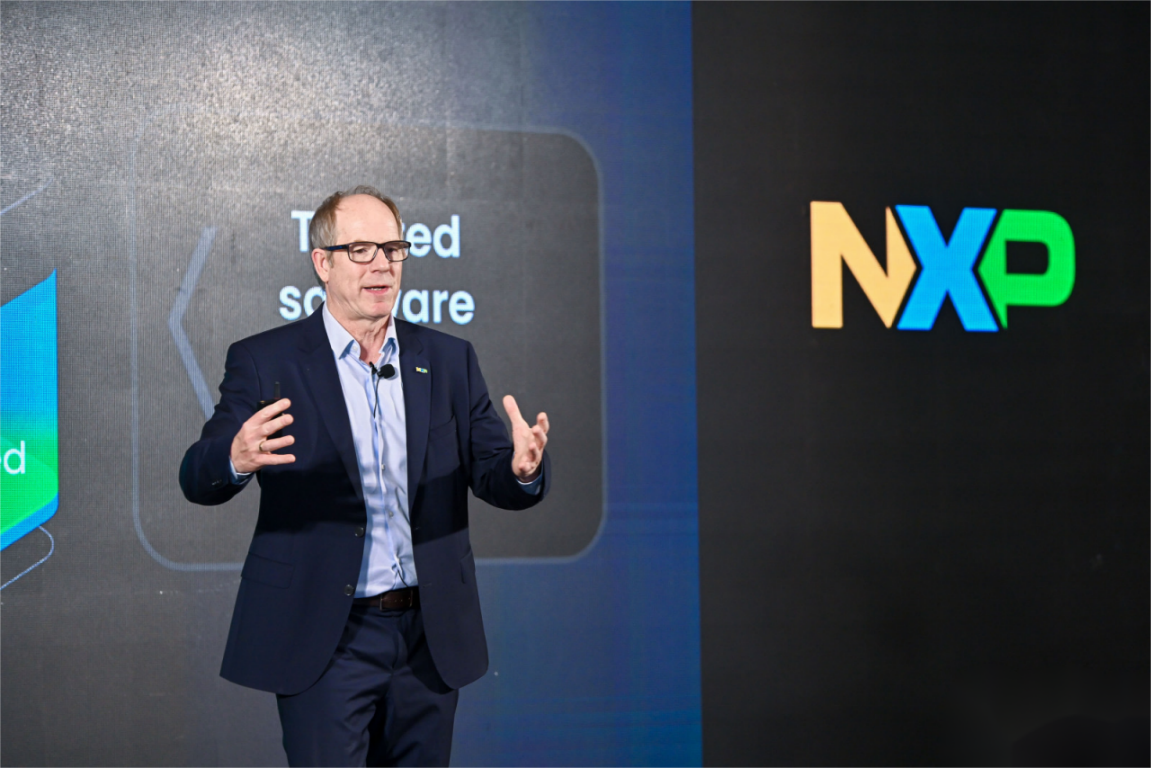NXP doubles down on localized strategy to power auto innovation


NXP Semiconductors is stepping up its commitment to the Chinese automotive sector, as the Dutch chipmaker deepens local engagement, accelerates innovation, and co-creates next-generation intelligent vehicle solutions with China's fast-moving ecosystem.
"China's automotive industry is not only one of the most dynamic markets globally; it is also setting the pace for future mobility," said Jens Hinrichsen, executive vice-president and general manager of Analog and Automotive Embedded Systems at NXP Semiconductors.
Hinrichsen made the remarks at an event held earlier this month in Dalian, Liaoning province.
"Today's cars in China are faster to innovate, more software-driven, and better aligned with consumer expectations than anywhere else in the world," he said.
China has long been crucial to NXP, with the country now accounting for roughly one-third of its global revenue.
To better serve this market, the company launched a dedicated China business unit earlier this year, integrating R&D, operations, quality, technical support and sales into a localized, agile organization.
Robert Li, executive vice-president and general manager of China for NXP, said this move reflects a shift from simply serving the Chinese market to co-creating within it — deploying global resources while giving Chinese teams the autonomy to define, design, and deliver locally optimized products.
The strategic realignment comes as China rapidly moves into the era of edge AI and software-defined vehicles.
In Hinrichsen's view, the future of mobility lies in scalable, modular computing platforms where core vehicle functions — from ADAS to infotainment — are separated from hardware and managed through centralized software systems.
"To deliver real-time, safe, and upgradable features, we need to break free from traditional architectures. Our CoreRide platform is one way NXP is making that shift a reality."
NXP's CoreRide integrates high-performance processors, middleware, and system-level reference designs to enable faster deployment of new features across vehicle lines.
The recent acquisition of TTTech Auto, a long-time software partner, strengthens NXP's system-level capabilities and reflects its ambition to offer open, interoperable solutions to automakers in China and beyond.
The company is also advancing its ultra-wideband and imaging radar solutions in collaboration with Chinese partners.
From digital keys to in-cabin child detection, NXP's hardware-software co-design allows new use cases to be activated via software updates — improving total cost of ownership while supporting faster innovation cycles.
NXP's commitment to the Chinese market is matched by its investments on the ground.
The company now operates six R&D centers, six laboratories, and over 14 offices in China, with more than 1,600 engineers among its 6,000 local employees. Its largest global back-end assembly and test facility is also located in Tianjin.
Over 200 products have been defined, designed, and developed by teams in China, many of which have gone into mass production with local OEMs such as Geely, Changan, Leapmotor, and Great Wall Motors.
This deep localization effort is not just about proximity — it's about agility.
As Li noted, "Chinese automakers are leading global innovation with unprecedented speed and scale. Our role is to match that speed with dedicated support, resilient local supply chains, and ecosystem-wide collaboration."
Beyond traditional OEMs, NXP is also working with emerging players in robotics, AIoT, low-altitude mobility, and industrial automation.
By forming partnerships with startups, universities, and software developers, the company aims to foster the next wave of "new quality productive forces" that is reshaping China's digital economy.
Crucially, NXP sees China not just as a market to serve but as a launchpad for global competitiveness.
"Innovations developed in China are setting global benchmarks," said Li. "With the right combination of global resources and local speed, we believe China will continue to drive the future of automotive electronics — and NXP will be there, growing with it."




































